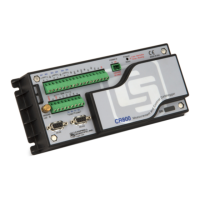Section 7. Installation
Use of Multiple Scans
'This program example demonstrates the use of multiple scans. Some applications require
'measurements or processing to occur at an interval different from that of the main
'program scan. Secondary scans are preceded with the SlowSequence instruction.
'Declare Public Variables
Public PTemp
Public Counter1
'Declare Data Table 1
DataTable(DataTable1,1,-1) 'DataTable1 is event driven.
'The event is the scan.
Sample(1,PTemp,FP2)
Sample(1, Counter1, fp2)
EndTable
'Main Program
BeginProg 'Begin executable section of program
Scan(1,Sec,0,0) 'Begin main scan
PanelTemp(PTemp,250)
Counter1 = Counter1 + 1
CallTable DataTable1 'Call DataTable1
NextScan 'End main scan
SlowSequence 'Begin slow sequence
'Declare Public Variables for Secondary Scan (can be declared at head of program)
Public Batt_Volt
Public Counter2
'Declare Data Table
DataTable(DataTable2,1,-1) 'DataTable2 is event driven.
'The event is the scan.
Sample(1,Batt_Volt,FP2)
Sample(1,Counter2,FP2)
EndTable
Scan(5,Sec,0,0) 'Begin 1st secondary scan
Counter2 = Counter2 + 1
Battery(Batt_Volt)
CallTable DataTable2 'Call DataTable2
NextScan 'End slow sequence scan
EndProg 'End executable section of program
7.7.2 Data Input: Loading Large Data Sets
Large data sets like look-up tables or tag numbers, can be loaded in the CR800 for
use by the CRBasic program. Do this by using the Data, DataLong, and Read
instructions, as demonstrated in CRBasic example Loading Large Data Sets
(p. 182).

